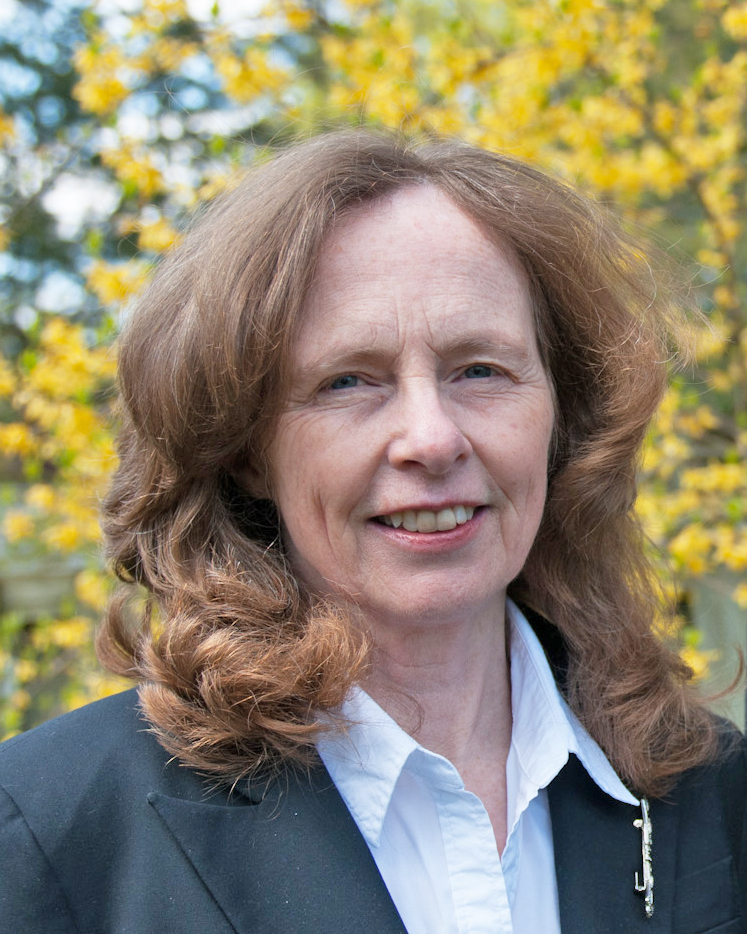Eleanor Johnston
 On Easter Sunday the church will ring with joyful celebration.
On Easter Sunday the church will ring with joyful celebration.
We will, however, often worship side by side with friends and family members who disagree with us at a fundamental level. Determined to keep everyone happy, we will sing some old favourite hymns with gusto and expect to hear some modern ones sung with feeling.
Yet every Easter, I am astounded by the bizarre images in the hymns’ words. “The Lamb upon his throne” and “Crown him with many crowns.” Are we still at the polytheistic stage?
Even when we are trying to avoid arguments in the Easter morning service, we do argue. Our Anglican worldwide communion, like other faiths, is torn by deep divisions. Wherever we attend different churches, we realize that each church is convinced that its unique way is the only way. The great dangers of our time, on a level with nuclear war and pollution, are the religions that actually want to fight, to hate others.
Churches around the world have tried unsuccessfully to update their beliefs in relevant forms. Christ Triumphant wearing medieval battle garb and wielding a sword will not solve our problems.
We watch in horror as children snatched from immigrants in the USA have lost their families and the government doesn’t know how to find them. The Roman Catholic Church is just now realizing the criminality of its priests’ sexual abuse of women and children.
Our new model is the United Nations. Its insistence on respect for all peoples, all religions, all races, all species, all ecosystems, is based on peace making and peace keeping. The tools of their missions are not weapons but democracy, education, co-operation, negotiation, inclusiveness and development.
Perhaps it is not too late to end strife and battles by rejecting violent images of God and worshipping a God of Peace. A non-violent God will hopefully produce a non-violent people.
So, we hope. The Easter message promises new life springing from the apparently dead earth, spring from winter. The world of nature has much to teach us.
“What language shall I borrow to thank you, dearest friend?” Our liturgical language and the hymns we choose shape our understanding and experience of the Divine. With words and acts of forgiveness, we can work for our Easter church and in our world.
Easter this year, where should we begin?
The strife is o’er, the battle done
Eleanor Johnston
We will, however, often worship side by side with friends and family members who disagree with us at a fundamental level. Determined to keep everyone happy, we will sing some old favourite hymns with gusto and expect to hear some modern ones sung with feeling.
Yet every Easter, I am astounded by the bizarre images in the hymns’ words. “The Lamb upon his throne” and “Crown him with many crowns.” Are we still at the polytheistic stage?
Even when we are trying to avoid arguments in the Easter morning service, we do argue. Our Anglican worldwide communion, like other faiths, is torn by deep divisions. Wherever we attend different churches, we realize that each church is convinced that its unique way is the only way. The great dangers of our time, on a level with nuclear war and pollution, are the religions that actually want to fight, to hate others.
Churches around the world have tried unsuccessfully to update their beliefs in relevant forms. Christ Triumphant wearing medieval battle garb and wielding a sword will not solve our problems.
We watch in horror as children snatched from immigrants in the USA have lost their families and the government doesn’t know how to find them. The Roman Catholic Church is just now realizing the criminality of its priests’ sexual abuse of women and children.
Our new model is the United Nations. Its insistence on respect for all peoples, all religions, all races, all species, all ecosystems, is based on peace making and peace keeping. The tools of their missions are not weapons but democracy, education, co-operation, negotiation, inclusiveness and development.
Perhaps it is not too late to end strife and battles by rejecting violent images of God and worshipping a God of Peace. A non-violent God will hopefully produce a non-violent people.
So, we hope. The Easter message promises new life springing from the apparently dead earth, spring from winter. The world of nature has much to teach us.
“What language shall I borrow to thank you, dearest friend?” Our liturgical language and the hymns we choose shape our understanding and experience of the Divine. With words and acts of forgiveness, we can work for our Easter church and in our world.
Easter this year, where should we begin?
The official communications channel of the Anglican Diocese of Niagara.
Keep on reading
Preaching as Spiritual Discipline: A Modern Challenge
Beekeeping Offers Insights for Healthy Parish Ministry
An Unexpected Journey to Becoming a Deacon
Coaching Helps Clergy Run the Race Well
Camp Gears up for a Summer of Memories
Wonder, Love and Prayer